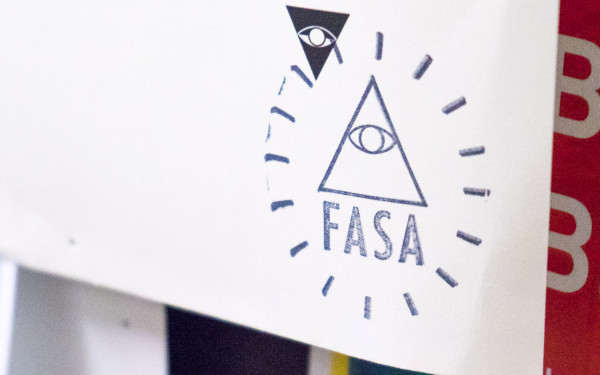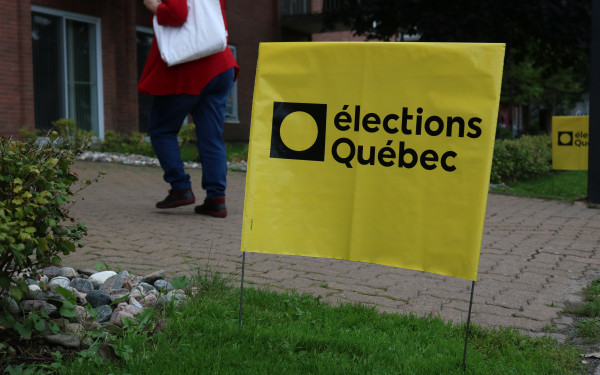Concordia Truth and Democracy Lecture Series Kicks Off
Year-Long Series Features Journalism and Social Science
In an age where a man holding the most powerful position calls most news fake and conspiracy theories are rising, who can we trust?
Democracy and the state of journalism are currently hot topics, and the Truth and Democracy: Journalism, Politics, and Social Science conference series explores these ideas by bringing different speakers to Concordia over the school year.
It’s organized by Concordia’s Centre for Broadcasting and Journalism Studies and Le centre de recherche interdisciplinaire sur la diversité et la démocratie. More specifically, professor of sociology and anthropology, Greg Nielson, and the journalism department’s Undergraduate Program Director, Dr. Andrea Hunter.
The series kicked off Tuesday at the SB atrium with Texas State University assistant professor of philosophy Holly Lewis, author of The Politics of Everybody: Feminism, Queer Theory, and Marxism at the Intersection.
The series reflects on disciplines and offers a critical view of the current state of affairs without giving anyone the last word. Hunter said that the idea behind it is to start a wide-ranging discussion on the connection between journalism, social science, politics, and democracy, and how these different fields work with, or against, each other.
Nielson asked, “With so much disinformation, how can social science, politics, or journalism do its job?”
“With so much disinformation, how can social science, politics, or journalism do its job?”—Greg Nielson
He added that these require trust from the public and proper facts. He claimed there is a lack of both at the moment, and that journalists have lost the ability to convince the public of their professional ethic.
“Journalism is such an important part of democracy,” Hunter stressed. “I think this is being re-emphasized today as we talk about the importance of journalists as being watchdogs.”
Nielson believes the social sciences are struggling with truth, knowledge, and power as they have “pitiful resources to do their research compared to technology, engineering, and health sciences.”
As both a researcher and a journalist, Hunter benefits from both academic and hands-on perspectives. She believes that to improve the discussion on democracy and create change, both need to come together.
“It’s not enough to analyze the media, it’s not enough to do things,” she said. “I think you really need to have both those things coming together to really understand what’s going on.”
Later lectures in the series will touch on political journalism, science journalism, and Indigenous reporting.
Holly Lewis: “The Politics of Everybody: A Marxist-Queer View from the U.S”
In her talk Tuesday, Lewis addressed the problems that are threatening democracy—from the rise of fascist groups to conspiracy theories and the culture of fear in academia—to a room of about 40.
She described a scene at Texas State University the day after the presidential election where young men were holding machine guns. They were Texas State vigilantes, who Lewis quoted as saying, “Now that our man Trump is in office, we want to arrest and torture university leaders promoting diversity.”
Her book aims to contribute to the discussion of feminism, queer politics, and marxist politics.
“I wanted [to talk about] the totality of material-social relations but also leave room for our interpersonal interactions in anti-capitalist circles,” she said.
She was concerned that most of the conversation around queer politics and marxism was coming from a gay, male perspective. This narrative, while valid, does not necessarily represent the broad spectrum of queer realities.
Lewis’ goal was to solve this issue by expanding the discussion to include trans, genderqueer, and lesbian perspectives.
She finds that most feminist talk fails to address the source of oppression, which she believes to be capitalism.
Nielson wanted to bring in Lewis as a speaker because her book “opens the dialog of how to talk about the politics of everyone, and not just group politics.”






